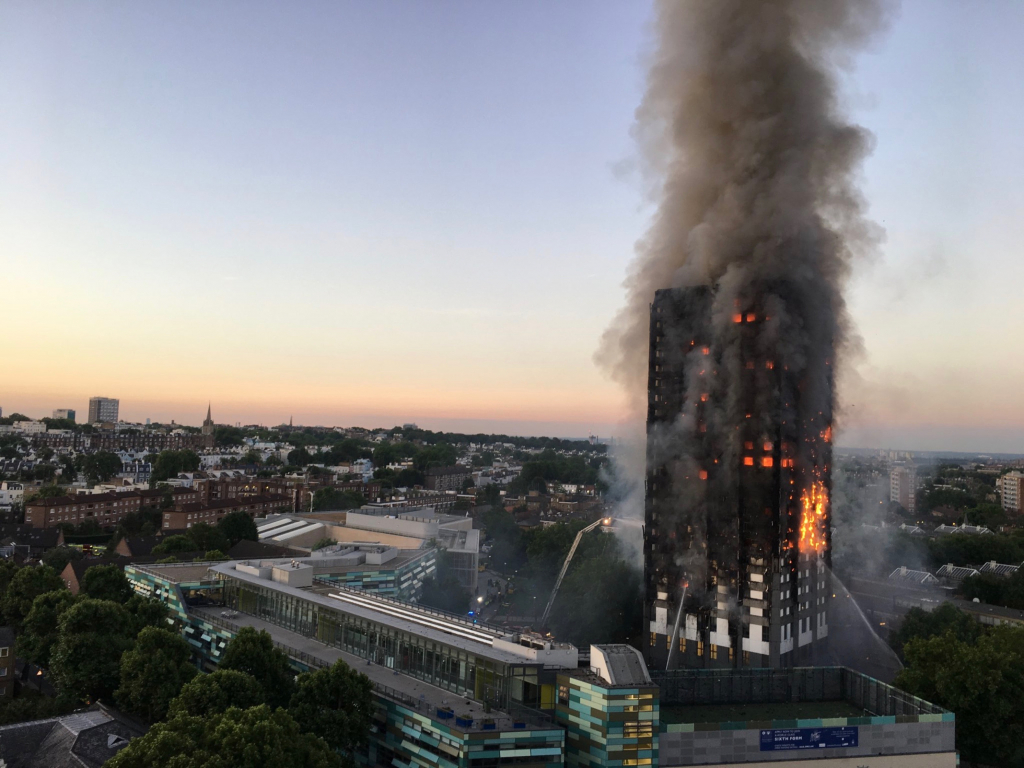


Today in 2017, a high-rise fire broke out in the 24-storey Grenfell Tower block of flats in North Kensington, West London and burned for 60 hours. Seventy people died at the scene and two people died later in hospital, with more than 70 injured and 223 escaping. It was the deadliest structural fire in the UK since the 1988 Piper Alpha oil-platform disaster and the worst UK residential fire since the German Bombings of World War II. The fire was started by an electrical fault in a refrigerator on the fourth floor. This spread rapidly up the building's exterior, bringing flames and smoke to all residential floors, accelerated by dangerously combustible aluminium composite cladding and external insulation, with an air gap between them enabling the stack effect.
The fire is the subject of multiple complex investigations by the police, a public inquiry and coroner's inquests. Among the many issues investigated are the management of the building by the Kensington and Chelsea London Borough Council and Kensington and Chelsea tenant management organisation TMO (which was responsible for the borough's council housing), the responses of the Fire Brigade, other government agencies, deregulation policy, building inspections, adequate budgeting, fire safety systems, the materials used, companies installing, selling and manufacturing the cladding, together with failures in communications, advice given or decisions made by office holders. In the aftermath of the fire, the council's leader, deputy leader and chief executive resigned and the council took direct control of council housing from the TMO.
Parliament commissioned an independent review of building regulations and fire safety, which published a report in May 2018. In the UK and internationally, governments have investigated tower blocks with similar cladding. Efforts to replace the cladding on these buildings continue. A side-effect of this has been hardship caused by the UK cladding crisis. The Grenfell Tower Inquiry began on 14 September 2017 to investigate the causes of the fire and other related issues. Findings from the first report of the inquiry were released in October 2019 and addressed the events of the night. It affirmed that the building's exterior did not comply with regulations and was the central reason why the fire spread and that the fire service were too late in advising residents to evacuate. A second phase to investigate the broader causes began on the third anniversary in 2020. Hearings have concluded and the Inquiry Panel is preparing its final report, scheduled to be published on 4 September 2024. Following publication, the Crown Prosecution Service will decide if criminal charges are to be brought. In April 2023, a group of 22 organisations including cladding company Arconic, Whirlpool and several government bodies reached a civil settlement with 900 people affected by the fire.